Measurement
- Plus Plan
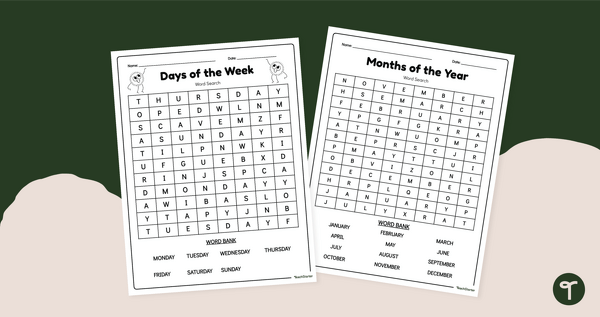
Days of the Week - Months in a Year Word Search Worksheets
Practise reading and spelling the days of the week and months of the year with printable Day and Month Word Search worksheets.
- Free Plan
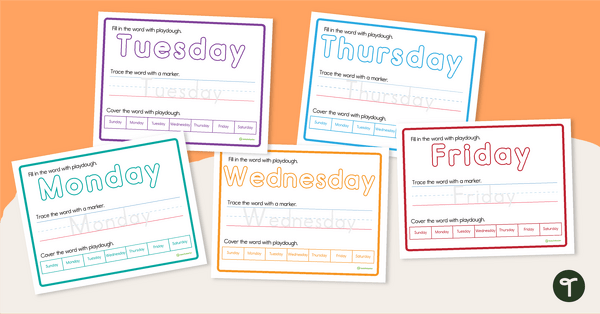
Days of the Week Playdough Mats
Use playdough mats to help your students identify, sequence and spell the days of the week.
- Plus Plan
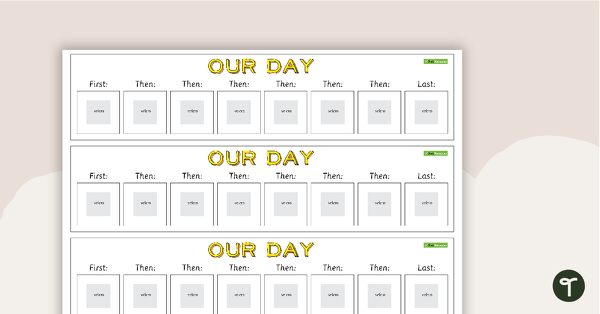
Visual Daily Timetable - Desk Strip
A visual timetable for students who could benefit from having the days activities displayed on their desk.
- Free Plan
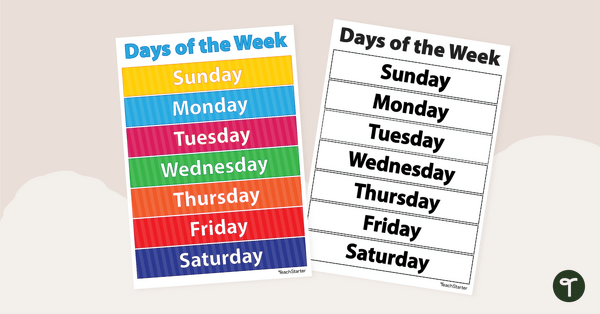
Days of the Week Poster
Display the days of the week with a bright and cheery Days of the Week Poster.
- Plus Plan
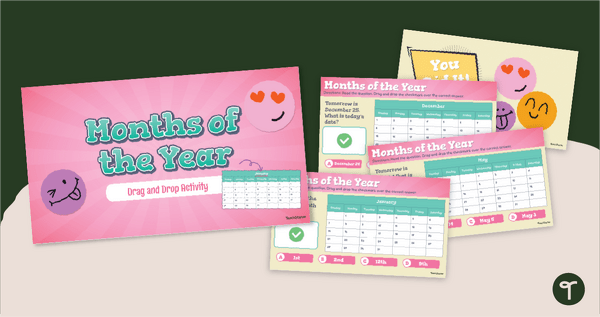
Months of the Year - Digital Maths Activity
Drag and drop to learn the months of the year and how to identify dates on a calendar with an engaging drag-and-drop interactive activity.
- Plus Plan
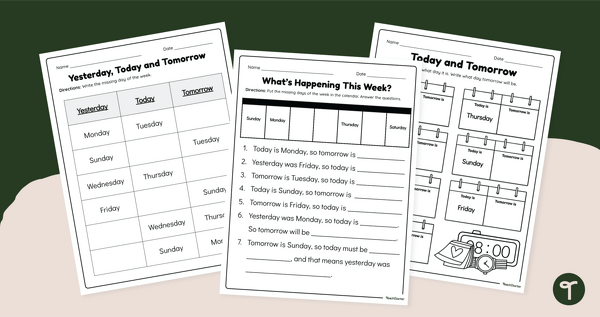
Ordering Days of the Week Worksheets
Practise ordering weekdays with a set of printable Yesterday, Today, and Tomorrow - Days of the Week Worksheets.
- Plus Plan
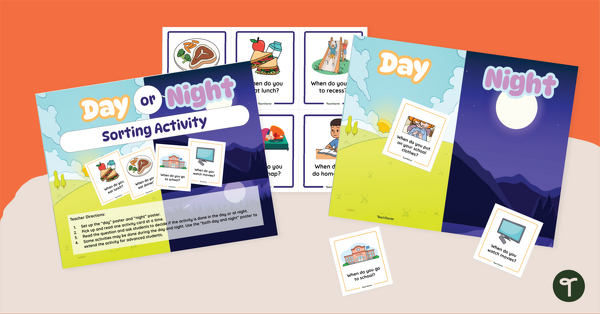
Day and Night Sorting Activity
Help your prep students understand and apply the concepts of day and night with this fun sorting activity.
- Free Plan
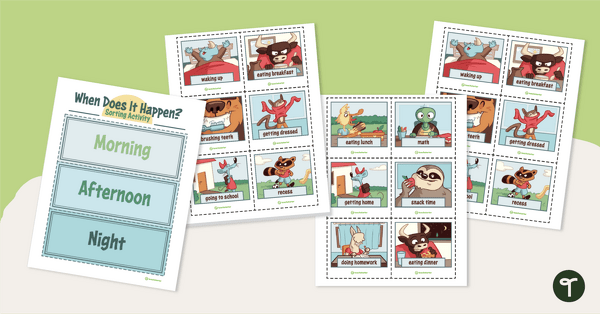
When Does It Happen? – Sorting Activity
Identify activities that happen in the morning, afternoon, and at night with a Time of Day Sorting activity for Foundations students.
- Plus Plan
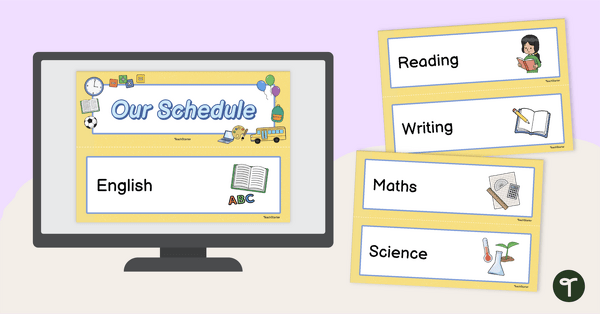
Classroom Timetable Cards
Keep your students on track by choosing from 60 editable schedule cards to display in your classroom.
- Free Plan
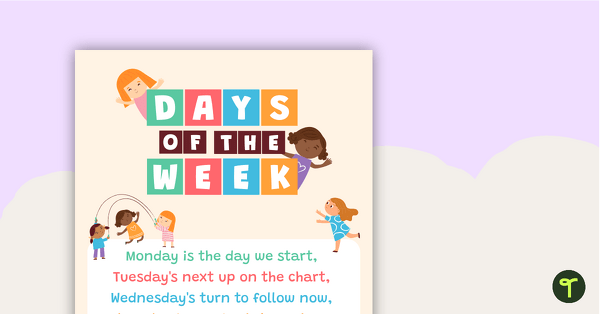
Days of the Week – Worksheet
A comprehension worksheet for a magazine article from the Foundation magazine (Issue 3).
- Plus Plan
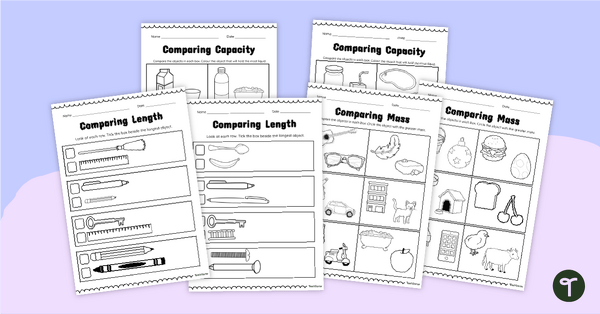
Measurement Worksheets for Foundation - Mass, Length, Capacity
Practise comparing units of mass, capacity, and length with a printable pack of foundation measurement worksheets.
- Plus Plan
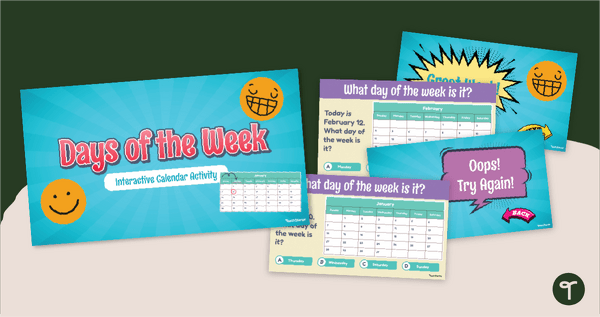
Interactive Days of the Week Maths Game
Introduce your little learners to the days of the week and months of the year with a self-checking interactive Calendar Maths Game.
- Plus Plan
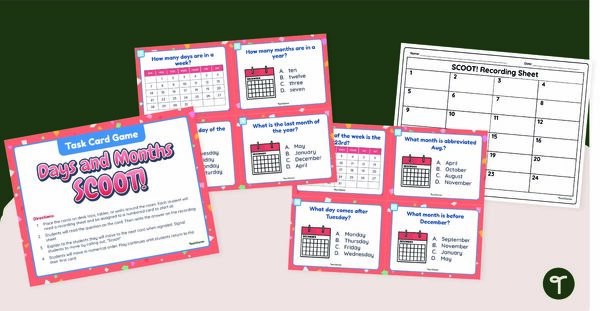
Calendar Maths - Days and Months Task Cards
Teach your students about calendars, days of the week, and months of the year with a Classroom Calendar Scoot Game!
- Plus Plan
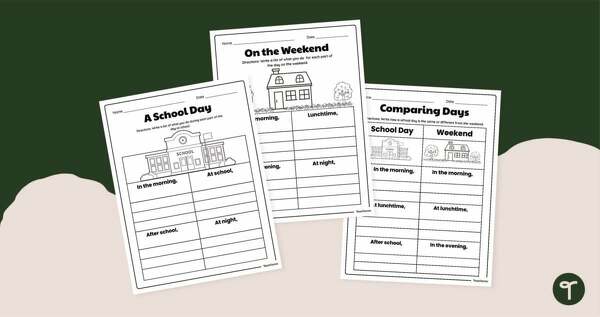
Informal Times of Day - Foundations / Year 1 Time Worksheet
Help students learn about time with a set of printable Informal Times of Day worksheets.
- Plus Plan
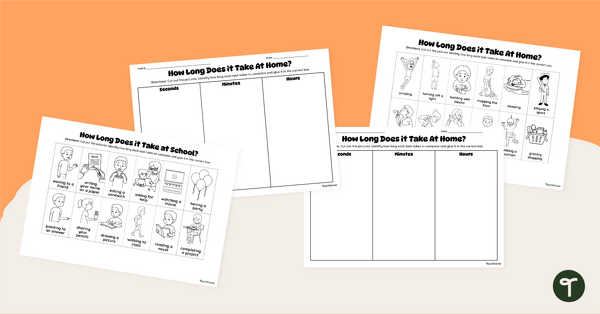
How Long Does It Take? – Seconds, Minutes & Hours Worksheets
Estimate the duration of time it takes to complete an action with a pair of Seconds, Minutes, or Hours? Cut and Sort Worksheets.
- Plus Plan
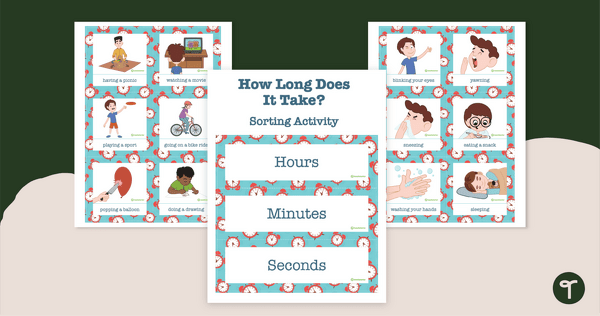
How Long Does It Take? – Sorting Activity
Identify activities that take about an hour, minute, or second with a sorting activity.
- Plus Plan
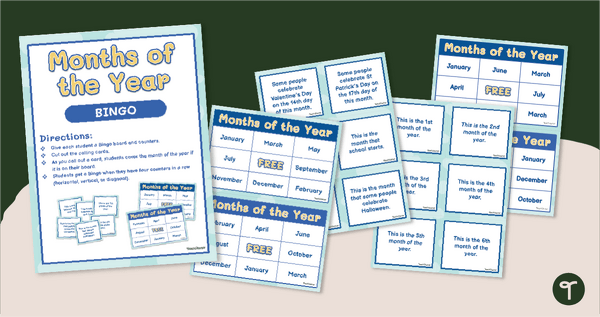
Months of the Year Bingo
Recognise and order the months in a year with a printable Bingo Game!
- Plus Plan
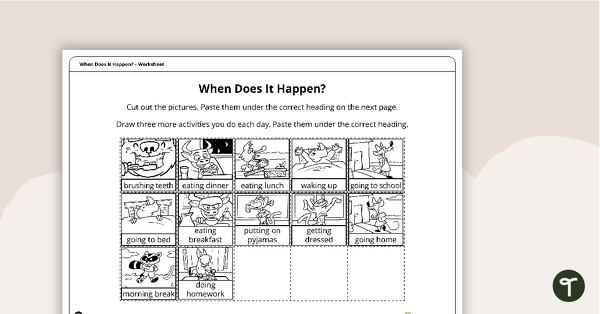
When Does It Happen? Worksheet
A cut and paste activity where students order familiar daily events.
- Plus Plan
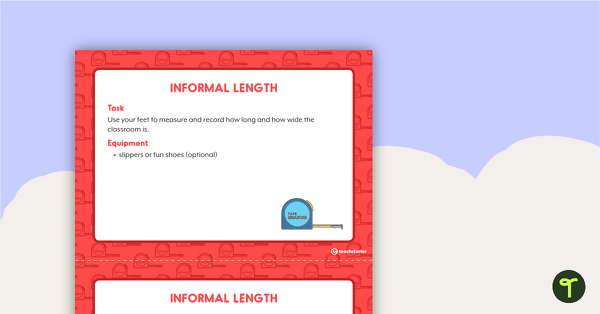
Informal Measurement - Task Cards
A set of task cards to use when learning about informal measurement.
- Plus Plan
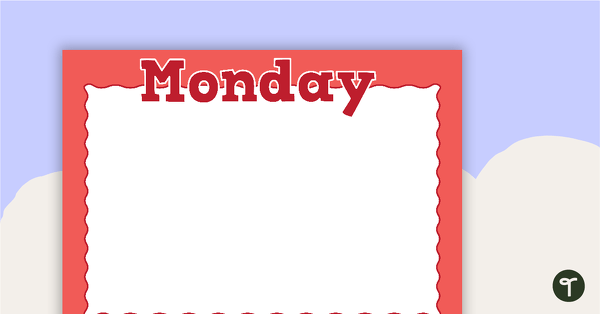
Daily Classroom Bulletin Boards
Print out the Monday to Friday (includes Saturday and Sunday) posters and display them in your classroom or on the front door.
- Plus Plan

Time Teaching Resource Pack
A collection of resources exploring time concepts.
- Plus Plan
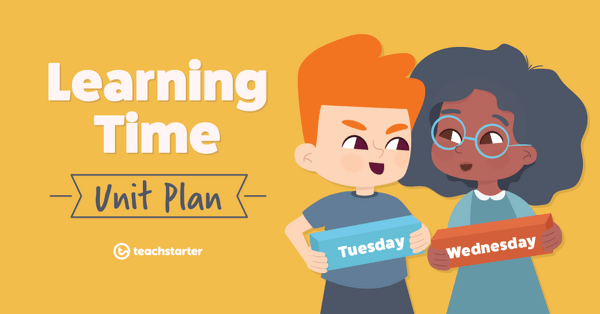
Days of the Week
A 30 minute lesson in which students will learn the days of the week in the correct order.
- Plus Plan
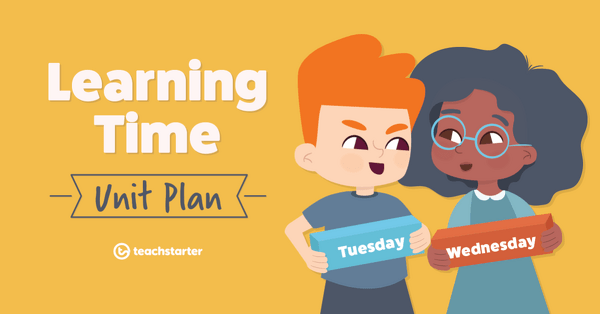
Times of Day
A 30-minute lesson in which students will know and identify the days of the week and link specific events to when they occur – morning, afternoon, and evening.
- Plus Plan
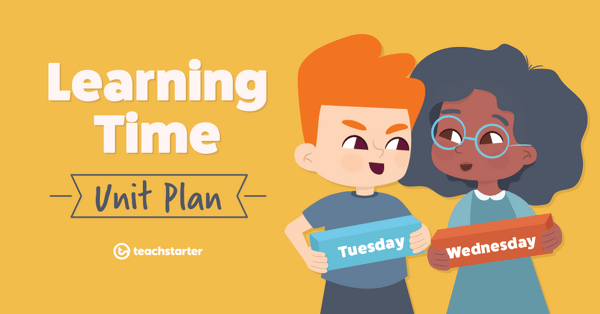
It's About Time!
An assessment task in which students will cut and paste familiar events under the headings, Morning, Afternoon and Evening.
- Plus Plan
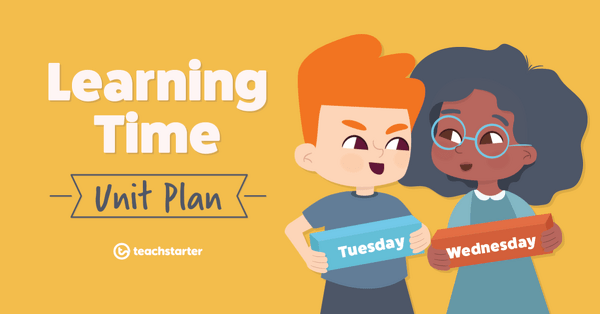
How Long is This Going to Take?
A 30-minute lesson in which students will estimate the time needed to complete a set of given tasks.
- Plus Plan
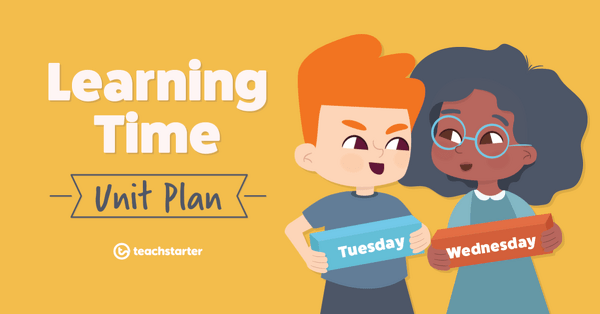
Informal Times of Day
A 30-minute lesson in which students will know and identify the days of the week and link events to specific informal times of the day, i.e., morning, afternoon, and evening.
- Plus Plan
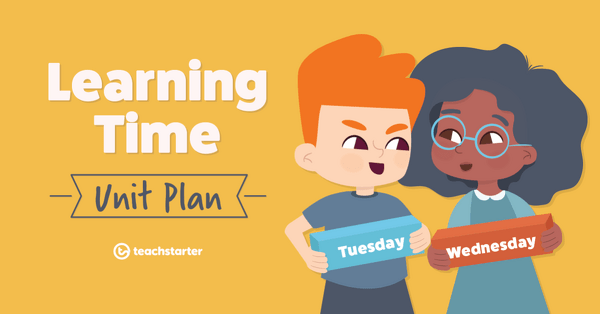
Learning Time! Unit Plan
This Mathematics unit addresses the concept of time for young learners. It focuses on the days of the week, connecting familiar events to particular days and sequencing events in time order.